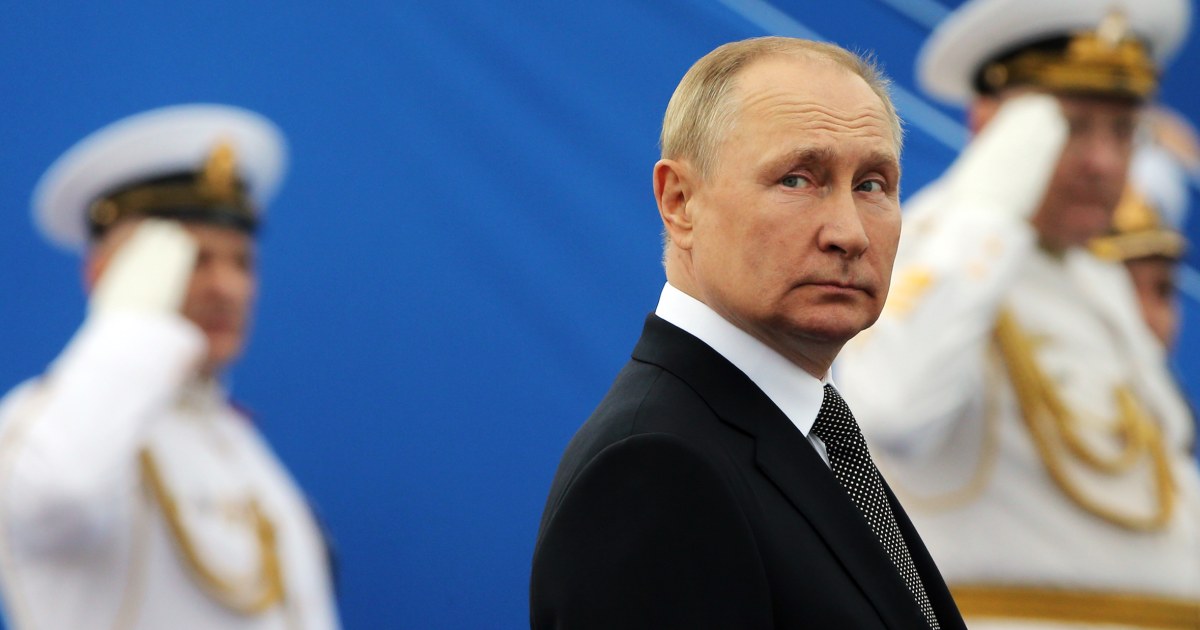
www.nbcnews.com
Russia's army is plagued by training and morale issues as Moscow rolls out partial mobilization
The main challenge the Russian military faces after almost seven months at war looks likely to remain a basic one: manpower.
International
The main challenge the Russian military faces after almost seven months at war looks likely to remain a basic one: manpower.
The “partial mobilization” President Vladimir Putin rolled out Wednesday aims to add an additional 300,000 reservists to the front, according to Defense Minister Sergey Shoigu, primarily those with some kind of military experience. This comes after the Kremlin had already aimed to boost its military machine to 1.15 million last month, the Pentagon said.
But it is unlikely that anywhere near all of the 300,000 will have true combat experience or training, or get it once in the field, said Jeff Edmonds, who served as the National Security Council’s director for Russia in the Obama administration.
“Realistically, most of these guys haven’t been through recent training, and a 300,000 input is incredibly high,” he said. “Most Russian soldiers receive most of their training in the units now, but it’s hard to imagine the units that are in Ukraine being in any state to train recruits.”
Ukraine had nearly 200,000 active duty soldiers at the start of the war, according to the International Institute for Strategic Studies, a British research institute in London. Kyiv bolstered that number with new recruits and volunteers that are trained in Ukraine and in partner countries, such as Poland and the United Kingdom.
Russia had about 1 million active personnel at the start, according to the institute’s estimates, though it did not dedicate all its troops to Ukraine.
Air Force Brig. Gen. Pat Ryder, the Pentagon press secretary, said Thursday that Putin’s mobilization appeared to expose that the Russian military was struggling with personnel shortfalls in Ukraine and that this could further exacerbate “command and control, the logistics, the sustainment, and importantly, the morale issues that we’ve seen Russian forces in Ukraine experience.”
Ryder said “it would take time for Russia to train and prepare and equip these forces,” with estimates ranging from weeks to months, meaning that these reinforcements could arrive closer to Ukraine’s bitter winter months when the front lines could freeze until the spring.
“In many ways, this is just bad after bad,” Edmonds said.
A depleted military
The Russian military has sapped much of its training infrastructure to support a war that has gone disastrously wrong for them in many ways, Edmonds and retired Marine Col. Mark Cancian said. The officer stock has also taken significant casualties. Both of these have made it hard to identify how the new additions to the Russian military could be trained or used effectively in this war.
The Kremlin does not have a reserve military to draw on the way the U.S. does, said Cancian, a senior adviser at the Center for Strategic and International Studies, a think tank in Washington. The U.S. maintains a reserve force that it puts through military drills one weekend a month, two weeks in the summer and several months before deployment, he said.
“The Russians don’t do that,” Cancian said. “After you serve in the military — and this has been true for decades — your name is on the list, but you don’t really do any training. So you might have been discharged five years ago and now you’re being called up all of a sudden.”
Analysts and current officials noted a tougher ecosystem for Russian recruiters as well. They cited a report by OVD-Info, a Russian human rights group, that claimed that recently arrested anti-war protesters in Moscow were drafted into military service. Many also noted a viral video of the Wagner Group, a Russian mercenary outfit, recruiting prisoners as new soldiers for the Ukrainian front.
Forcing dissidents and unwilling Russians into the military would likely exacerbate what are widely believed to be deep problems with morale within the rank and file. This week, the Duma, Russia’s parliament, passed legislation that would further punish deserters and those refusing to fight.
























































